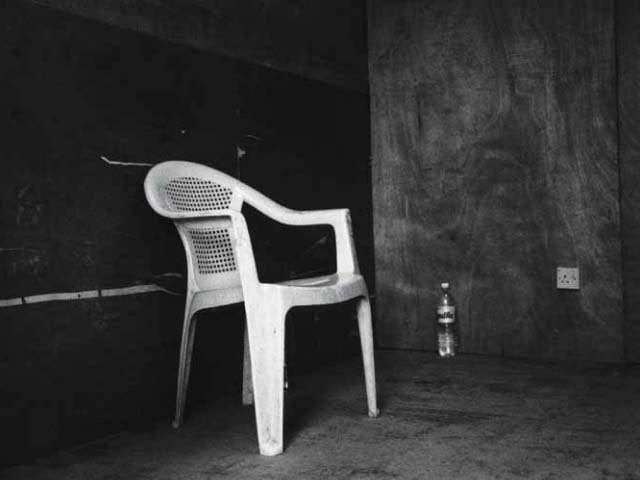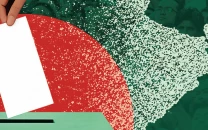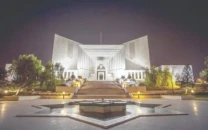57% of accused tortured in police custody: Report
Victims claim lawyers, magistrates do not pursue complaints against brutality.

The tools are varied: leather shoes, steel rods, iron rollers, whips, batons, sticks, ropes, needles, and pins. Victims describe being slapped, kicked, punched or stretched and tied to the frame of a charpoy.
Others say they have been hung upside down for prolonged periods of time. Forensic expert Dr Khurram Sohail Raja, based in Faisalabad, recalls a case brought to him of a detained female tortured with chili powder. These are the stories of victims of torture or brutality while in police custody.
According to the Lahore-based Democratic Commission on Human Development (DCHD), 57% of individuals accused of a crime in 2013 said they had been subjected to torture and humiliation while in police custody.

Every year on June 26, the United Nations observes an International Day in Support of Victims of Torture. The theme for this year is ‘Fighting Impunity’. The DCHD says 81% of respondents who claimed they had been tortured said the magistrate did not ask them any questions relating to torture. Even when the torture was reported, 87% said their lawyers did not file a complaint.
Former IGP Punjab Azhar Hassan Nadeem says the police, in general, and police officials in Punjab in particular, are known to torture the accused, often to levels he refers to as ‘third degree’ or severe torture. Separately, Amnesty International, in its report on torture released last month, also described the widespread use of torture by the police. “Security laws enable state security forces to commit human rights violations like torture with impunity beyond the reach of the law,” says AI’s Pakistan researcher Mustafa Qadri.
(Il)legality of torture
‘Torture’ has not been legally defined in Pakistan, Barrister Ahmed Farooq tells The Express Tribune. The DCHD defines torture as incidents when ‘a public official or government employee employs the authority vested in the person for illegal purposes’, adding ‘torture is an abuse of state authority’.
On April 17, 2008, Pakistan signed the UN Convention Against Torture (CAT) and ratified this on June 23, 2010. In July 2011, Pakistan withdrew almost all its reservations to the International Covenant on Civil and Political Rights (ICCPR), becoming a state party to the covenant. Additionally, Article 10 (a) of the Constitution guarantees the right to a fair trial and Article 14(2) provides as follows: No person shall be subjected to torture for the purpose of extracting evidence. Section 348 of the PPC also alludes to torture as it points to “wrongful confinement to extort confession”.
So what does this mean? Farooq explains that an accused cannot be compelled to give evidence and can exercise his or her right to silence. Secondly, the law provides that no confession made by any person whilst in custody of a police officer, unless it is made in the immediate presence of a magistrate, shall be proved as against the person. Even if a confession is obtained, this is rendered “irrelevant if it appears to the court to have been caused by any inducement, threat or promise”, Farooq explains, adding that there are safeguards and procedures prescribed for magistrates to ensure that the confession is voluntary.
Fixing the system
Akmal Wasim, the head of litigation and research at the Karachi Legal Aid Office, believes that there is acceptance of torture because there is a misconception prevalent among the people. “People confuse torture with violence. Torture is something that definitely or temporarily for a long period destroys the personality and alters the character of the victim,” he told The Express Tribune. ”There is a need to bring in the definition of torture in the penal code or the General Clauses Act, 1897, Wasim argued. “We should import the entire text of Article 1 of the Convention on Torture into the prohibition.”
“The way to improve the situation would be to educate the police of their constitutional and legal duty, as well as the public of its rights and take strict action against any violation by the executive and judiciary,” Farooq feels.
*Name changed to protect identity
Published in The Express Tribune, June 26th, 2014.



















COMMENTS
Comments are moderated and generally will be posted if they are on-topic and not abusive.
For more information, please see our Comments FAQ